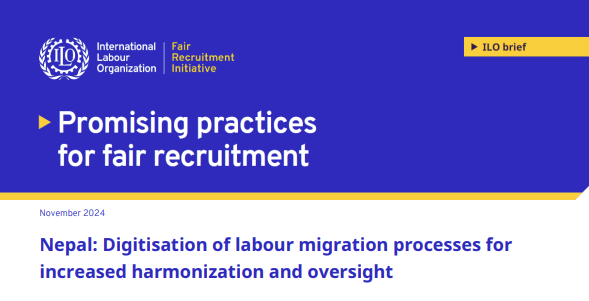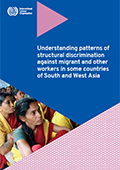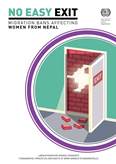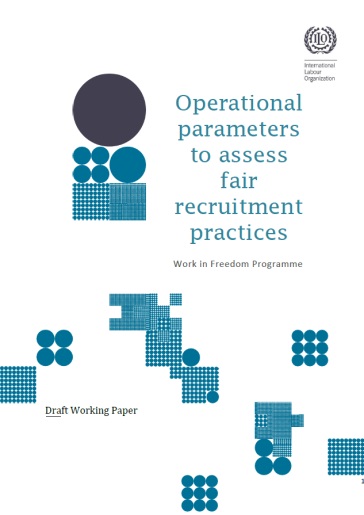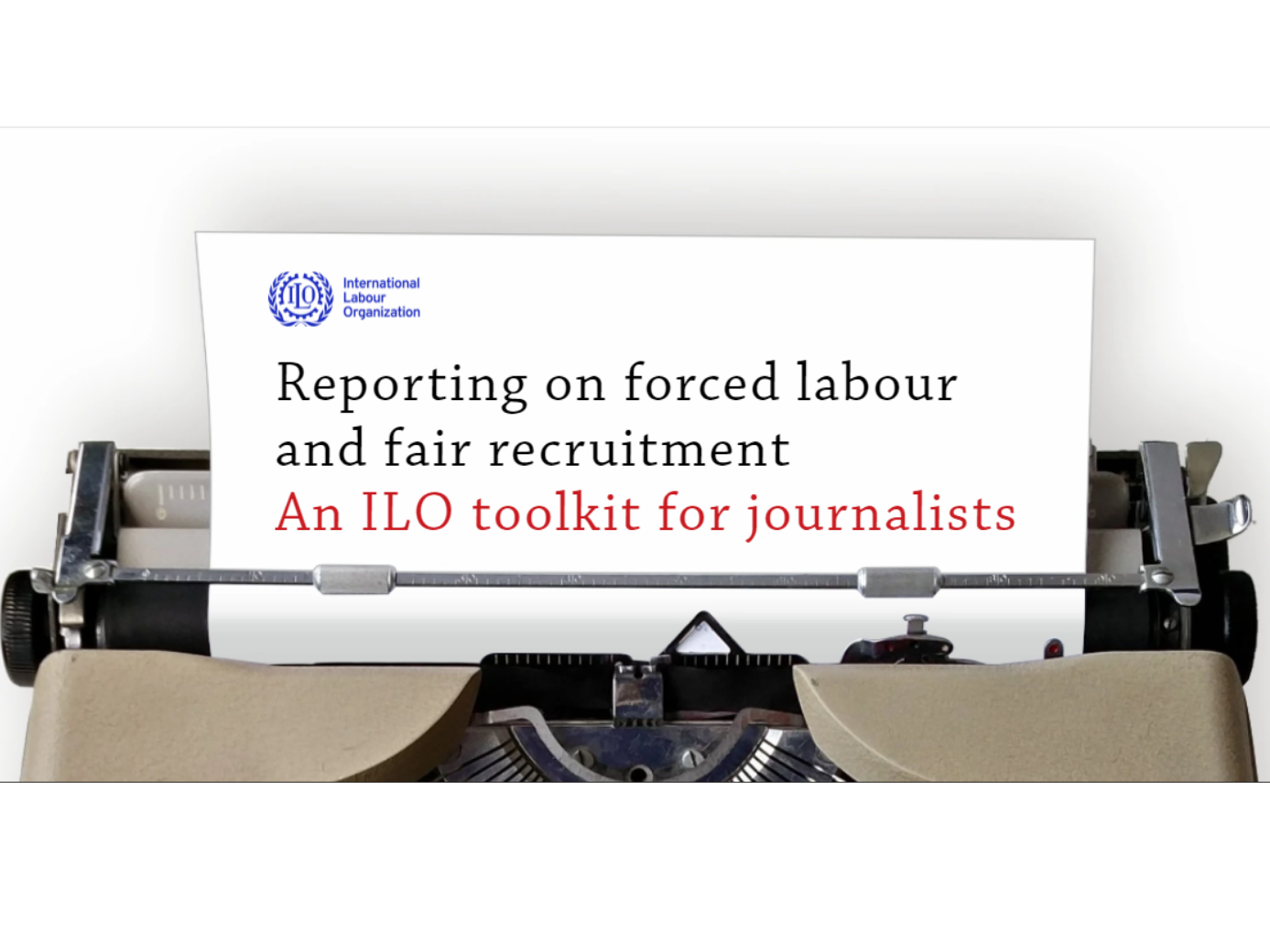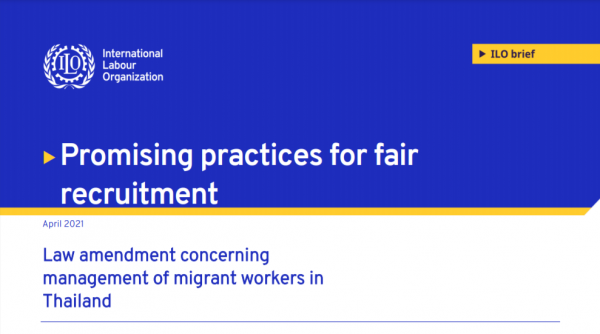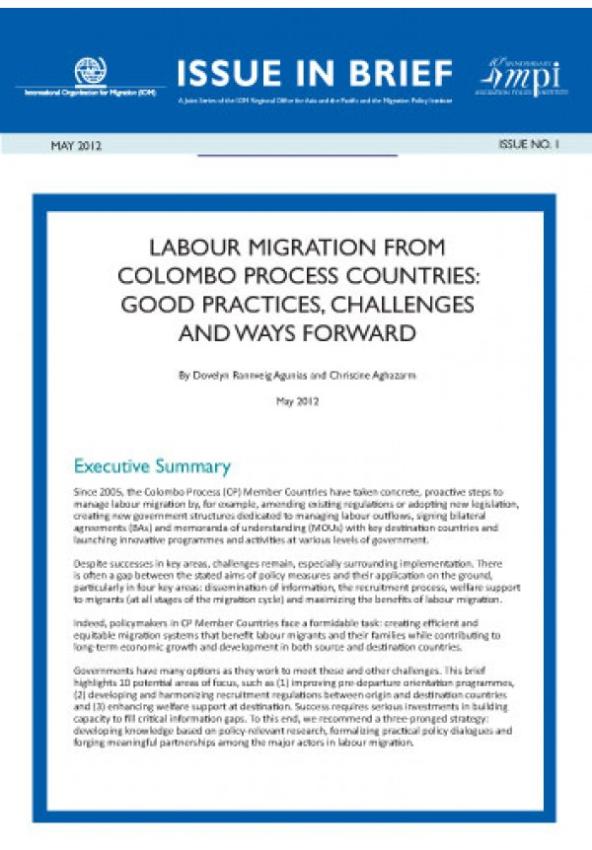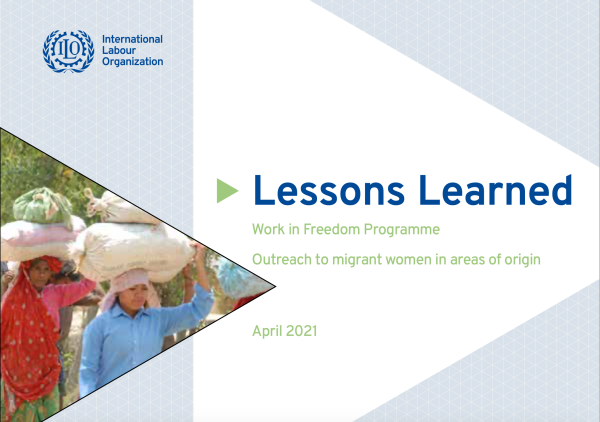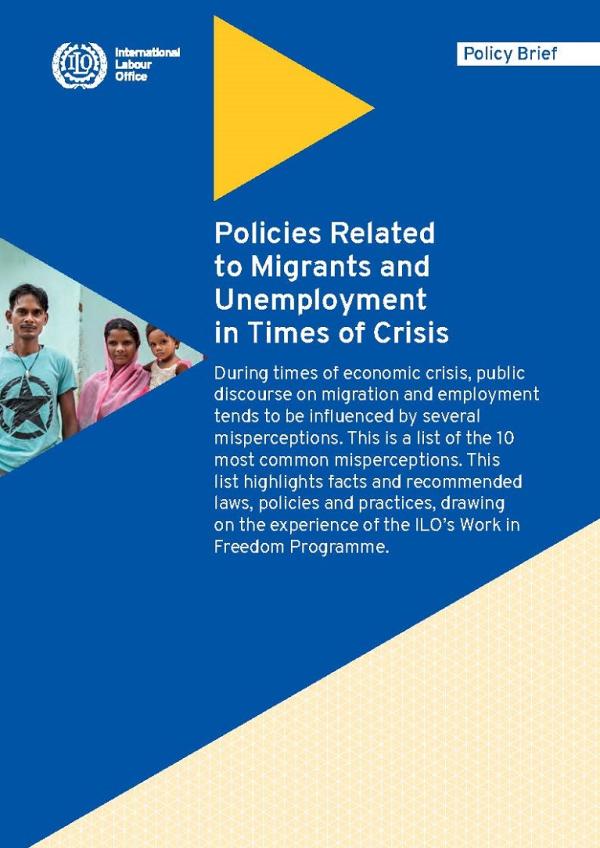Promising practices for fair recruitment in Nepal: Digitisation of labour migration processes for increased harmonization and oversight
This document highlights promising practices for fair recruitment in Nepal with a focus on the use of digital technology for increased harmonisation and oversight of migration processes.
Type of document :
Country/Region : , ,
Year of publication :
Theme : , , , , ,
Understanding patterns of structural discrimination of migrant and other workers in some countries of South and West Asia
This background paper reviews the literature that sheds light on the structural patterns of discrimination against migrant workers in some countries of South and West Asia. It also articulates recommendations that would help officials in UN agencies, international organizations, constituents and other civil society individuals and groups, while referring to the existing evidence of structural discrimination to support the application of international labour standards.
While references to international non-discrimination standards do occasionally surface in public discourses, this paper reviews evidence that discrimination in the world of work is not only characterized by socially deviant cases of discriminatory abuse, as reported in the media, but is rather intrinsic to the way various market economies and political systems are structured. This is manifested by indicators of privilege for some and indicators of deprivation for those at the bottom of the social and political hierarchies, including the interaction between both.
Type of document :
Country/Region : , , , , , , ,
Year of publication :
Theme : , , , , ,
No easy exit – Migration bans affecting women from Nepal
The ILO undertook this study with the Global Alliance Against Trafficking in Women (GAATW). It explores whether Nepal’s age ban deterred younger women from migrating for domestic work and improved working conditions for women migrant domestic workers over 30 years of age. It also explores to what extent the age ban and other bans have had unintended consequences for women, including an increase in irregular migration and trafficking in persons. Finally, it highlights steps the women themselves propose be taken to improve their migration experiences.
Type of document :
Country/Region :
Year of publication :
Theme : , , , ,
Working Paper on Operational Parameters to Assess Fair Recruitment Practices
These parameters list a series of questions and issues that should be looked into in order to assess recruitment practices.
In South Asia, the pathways to jobs in domestic, garment or other similar sectors within the region or to the Middle East are intersected by various agents or contractors in an environment shaped by multiple rules and practices determining the mobility of aspiring workers especially women. The fluidity and segmentation of labour supply chains and labour regimes are such that none of the key stakeholders such as labour recruiters, regulators and even employers can guarante on their own a fair migration outcome for any workers. To do so requires understanding the specificity of recruitment processes from end to end and strong multi-stakeholder cooperation. The purpose of these operational parameters is to identify the main fields that need to be assessed and related questions when analyzing recruitment processes.
Type of document :
Country/Region : , , , ,
Year of publication :
Theme : , , ,
ILO-GBSN-UNIGE hosts business school educators’ technical workshop on fair recruitment of migrant workers
Posted at July 11th 2023 12:00 AM | Updated as of July 11th 2023 12:00 AM
Region/Country : , , , , ,
|Themes : ,
Reporting on forced labour and fair recruitment: An ILO toolkit for journalists
This toolkit provides information and advice to media professionals on how to report accurately and effectively on forced labour and fair recruitment. The toolkit includes the Media-friendly glossary on migration.
This toolkit is available in: Arabic, English, French, Spanish.
The toolkit has been adapted to the national context in:
-
Nepal (English)
-
Nigeria (forthcoming)
-
Pakistan (English)
- Uganda (forthcoming)
-
Viet Nam (English, Vietnamese).
Click on each language to open the corresponding toolkit.
Type of document :
Country/Region : , , , , , , ,
Year of publication :
Theme : , ,
Promising practices for fair recruitment
This list presents a series of promising fair recruitment practices and results from a stocktaking exercise undertaken five years after the launch of the Fair Recruitment Initiative (FRI).
Establishment of the National Union of Malagasy Domestic Workers (SENAMAMA)
Code of Conduct for Ethiopian Overseas Private Employment Agencies
Recruitment of health workers through bilateral labour agreements (BLAs): Kenya and the United Kingdom
Madagascar alignment of labour code to newly ratified conventions
Regulation of Private Recruitment Agencies in Uganda
Law amendment concerning management of migrant workers in Thailand
Revision of the Law on Contract-Based Overseas Workers
Italian National Action Plan to tackle labour exploitation, unlawful recruitment and forced labour in agriculture
Nepal – Bilateral labour agreements include provisions related to fair recruitment
Bangladesh – Government capacity enhanced to promote fair recruitment in bilateral negotiations and arrangements
Tunisia – Formation of a new body of inspectors for the recruitment industry
India – Blacklisting employers and recruiters abroad to protect Indian migrant workers
Piloting fair recruitment from Bangladesh to Qatar in the construction sector
Fair recruitment pilot between Nepal and Jordan in the garment sector
Mexico - Fair recruitment practice by recruitment agency adapted to COVID-19
Code of Conduct on the fair recruitment of Filipino migrant domestic workers in Hong Kong (China)
Code of Conduct in international supply chains by Responsible Business Alliance
Commitment to fair recruitment and due diligence in the sugar and palm oil industry of Guatemala (English) Guatemala – Compromiso con la contratación equitativa y la debida diligencia en el sector guatemalteco del azúcar y el aceite de palma (Español)
Zero recruitment fee policy for (migrant) workers in Jordan
Guatemala – Outreach through trade unions including attention to COVID-19 (English) Guatemala – Difusión a través de los sindicatos, incluida la atención a la COVID-19 (Español)
Raising Pakistani migrant worker’s awareness of their right to fair recruitment
Type of document :
Country/Region : , , , , , , , , , , , ,
Year of publication :
Theme : , , , ,
IOM-MPI Issue in Brief No. 1 - Labour Migration from Colombo Process Countries: Good practices, challenges and ways forward
International migration has occurred throughout history and regions of the world. Human mobility to, from and within Asia, however, has certain distinctive features, and Asia represents arguably the most dynamic region, with significant intra- and extra-regional migration and some countries being simultaneously origins of and destinations for migrants.
The Migration Policy Institute (MPI) and the International Organization for Migration (IOM) Regional Office for Asia and the Pacific today launched an issue briefs series focusing in particular on labour migration in the region. The eight-part series also will examine diaspora engagement in Asia and climate-induced migration.
The first issue brief, Labour Migration from the Colombo Process Countries, examines labour migration from the 11 Colombo Process countries (Afghanistan, Bangladesh, China, India, Indonesia, Nepal, Pakistan, the Philippines, Sri Lanka, Thailand and Viet Nam). In 2010, an estimated 4.2 million workers migrated from these countries through official channels, many leaving on a temporary basis to work in the Middle East.
The Philippines sent the largest number (nearly 1.5 million), followed by India (641,000) and Indonesia (576,000). Overall, an estimated 44.7 million migrants from the region are living outside their country of origin.
Since 2005, the Colombo Process countries have taken concrete, proactive steps to manage the migration flows and protect their citizens working abroad, strengthening their legislative and administrative frameworks addressing recruitment regulation and welfare protection, as well as signing new accords with key destination countries. Despite the progress, however, the brief details a number of remaining challenges and highlights 10 possible areas of focus for governments.
“Governments in Colombo Process countries face a formidable task: creating efficient and equitable migration systems that benefit labour migrants and their families while contributing to long-term economic growth and development in countries of origin and destination,” said Andy Bruce, IOM regional director for Asia and the Pacific.
In June, IOM and MPI will publish the second issue brief, this one focusing on migrant health issues in the Asia-Pacific region. Subsequent briefs will be published every month through December, and will be available at IOM Online Bookstore and Migration Policy Institute.
Type of document :
Country/Region : , , , , , , , , , , ,
Year of publication :
Theme : , ,
Lessons Learned Part 1: Outreach to migrant women in areas of origin
This document describes the lessons learned by the Work in Freedom programme on outreach to migrant women in areas where they migrate from. This compilation was preceded by an earlier edition of Lessons Learned in October 2017, followed by another one in February 2019. The findings are important to inform Governments, donors and civil society groups on their policies regarding the protection of migrant women, safe migration, pre-departure training and orientation and more.
Type of document :
Country/Region : , , , , , ,
Year of publication :
Theme : , ,
Policy brief on policies related to migrants and unemployment in times of crisis
The purpose of this policy brief is to explain influence of misperceptions during times of economic crisis, on public discourse on migration and employment and recommend laws, policies and practices to overcome these misperceptions.
During times of economic crisis, public discourse on migration and employment tends to be influenced by several misperceptions. This is a list of the 10 most common misperceptions. This list highlights facts, recommended laws, policies and practices, drawing on the ILO’s Work in Freedom Programme. It was presented at the Kafala Reform Workshop on 11 March 2020 at Beirut, Lebanon by Mr Igor Bosc, CTA, Work in freedom Programme to the Minister of Labour and participants.
Type of document :
Country/Region : , , , ,
Year of publication :
Theme : , ,
Subscribe to the Fair Recruitment Initiative Newsletter
Sign up to receive news delivered to your inbox.

